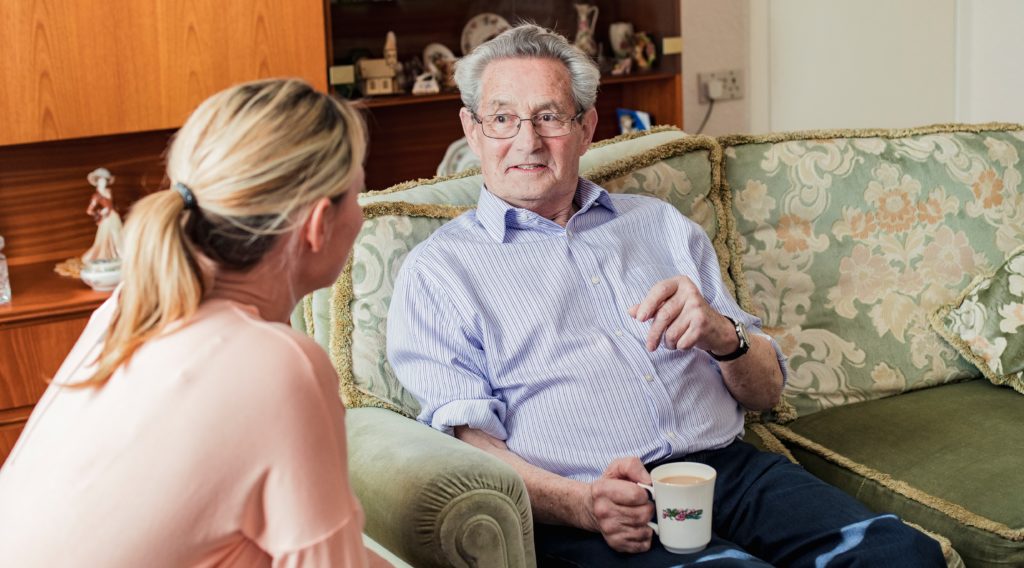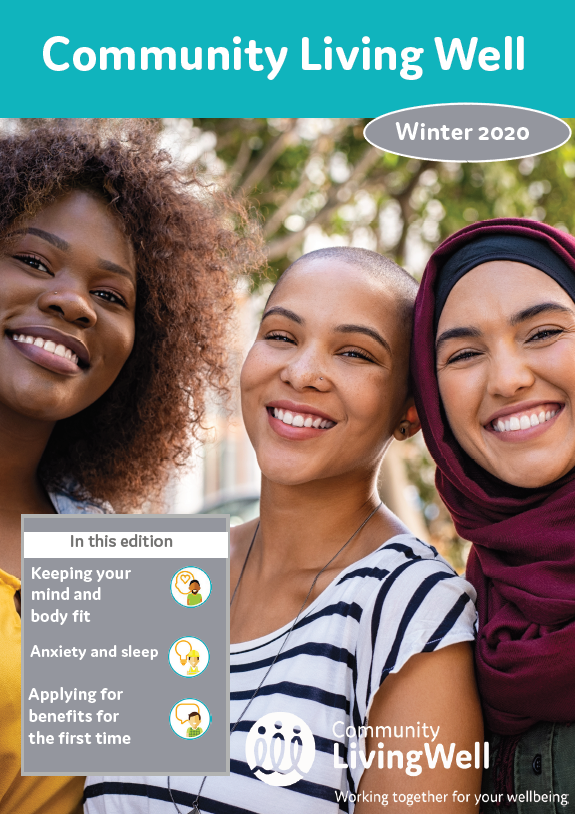Latest News
Returning to work after sick leave

Two-thirds of us will have suffered from some form of mental illness at some point in our lives. It can be even more devastating when it forces us to take a lengthy absence from work. However, once we are on the right road to recovery, going back to work is often one of the most important factors in speeding up our return to full health. It provides us with a support network and is an opportunity to regain our sense of self-esteem and puts some routine and stability back into our lives. Here are some tips on how to transition seamlessly back into the workplace.
Stay in touch
If you can, keep in touch with a trusted colleague while you’re off sick, or when you’re about to return. They can keep you abreast of things like door codes changing, if the stationary cupboard has moved etc, that your manager might overlook, and can help you feel at home in the office. You can also arrange a ‘drop in to work’ before your return to say hello to colleagues and get re-familiarised.
Speak to your GP
Before returning to work, speak to your GP as they might have recommendations to make for your return to work, such as:
- a phased return (not immediately returning to your full working hours or duties)
- flexible hours
- reasonable adjustments, such as recommending specialist equipment to help support you while you’re at work
Be honest
If you’re struggling, be honest! Let your employer or colleagues know if you need extra support. Please remember though that it’s up to you how much or how little you’d like to tell your colleagues about why you’ve been off work. Don’t feel pressured into sharing more than you feel comfortable with.
Prepare
There’s nothing worst than being late and feeling rushed on your first day back at work. If you can, lay out your outfit and items that you will need such as lunch, the night before. This will help ensure your morning goes as smoothly as possible. It could also leave you with extra time in the morning to allow for any unexpected delays or cancellations.
Looking for a job?
If you’ve had to leave your last job due to a mental illness and are now ready to return to work, here are some tips to help you with your job-seeking journey
Think ‘transferable’
Think about your transferable skills. Sometimes it might help to talk through the person specification for a job with a friend – you might be a better match for a role than you think! There are some skills which are invaluable regardless of the role, such as, time management, communication skills, the ability to work alone and as part of a team, and being able to prioritise tasks.
Ask questions during the interview
Although it can be tempting to ask about salary or promotion opportunities, the interview isn’t the best time to ask these questions. Instead, ask questions that will demonstrate a genuine interest in thse company, for example, ask the panel what they enjoy about working at the company.
Identifying gaps in your skills and experience
Do this by looking at the job descriptions and person specifications of roles you are interested in and see what areas you may need to work on. You could “fill in the gaps” by volunteering or completing a short course
Consider “flexible working”
More and more companies are offering “flexible working” and “working from home” as the way we work changes. Don’t be afraid to ask questions about what this really means, as it can differ greatly from company to company.
Network!
Sometimes it’s not about what you know but who you know. Make an effort to get to know people and attend events to keep updated of industry happenings to get your foot in the door.
This story was originally published in the Winter 2020 Community Living Well magazine. It has been edited for website purposes. Subscribe today to receive mental health and wellbeing tips straight to your inbox, four times a year!
Refer to the Community Living Well service here.
Author: Michelle Jackson
Category: Community Living Well, Employment
Posted on: 11th February 2020
The Winter 2020 Magazine is now available!
A very warm welcome to the Winter 2020 edition of the Community Living Well magazine (and excitingly the first one of the year and decade).
As we navigate our way through the shorter, colder winter days, you may feel a dip in your mood. It’s normal for us to feel down in winter. But if you find that it’s recurrent every winter, then you may have seasonal affective disorder. We have a special feature on seasonal affective disorder covering what it is, what the symptoms are and when to seek help.
We want you to remember that it’s okay to ask for help and support when you’re not okay. My hope is that when you finish reading this edition, you’re left feeling informed, uplifted, inspired and understood.
Plus…
From food and mood, sleep and anxiety to a focus on men’s mental health. The Winter 2020 edition is filled with content that aims to help you on your quest to improve your mental health and wellbeing. You’ll also have the opportunity to meet Matt Waters from the West London Clinical Commissioning Group (CCG) where he talks to us about the role the CCG plays in Community Living Well, his background and what’s on the horizon.
We want you to remember that it’s okay to ask for help and support when you’re not okay. My hope is that when you finish reading this edition, you’re left feeling informed, uplifted, inspired and understood.
As always, this magazine is about you – your thoughts, ideas, concerns and achievements. If you have any suggestions, features or stories you think we should include, please contact me, Michelle, on [email protected].
Community Living Well is a mental health service for those registered with a GP in the Royal Borough of Kensington and Chelsea, or the Queen’s Park and Paddington areas of Westminster. The services on offer include talking therapies, support groups, help with employment and support with debt, housing and benefits issues. Self-referrals can be made here. For more information please call 020 3317 4200.
Author: Michelle Jackson
Category: Community Living Well
Posted on: 5th February 2020
The Rise of Self-Help Platforms

Technology is changing the way we live. From online courses and habit trackers to sleep advice and breathing exercises, there’s never been a better way to explore and embrace how tech can help our mental health.
In 2019, the App Store editors have named self-help the breakout trend of the year. The ever-growing list of options aims to give people fuss-free, accessible ways to focus on the self from the comfort of their own home.
Self-help involves the actions that individuals take for themselves, on behalf of and with others in order to develop, protect, maintain and improve their health, wellbeing or wellness.
Moments of self-help add value, energy, purpose, and creativity to everything we do. No matter how fancy or indulgent the term may sound, acts of self-hep are vital in our quest for a healthy, balanced and enjoyable life. Self-help apps can be a helpful way to bring emotional regulation to the forefront of your mind. They are also a great way to get more skilled at thinking, feeling and engaging with the world in a healthier and more productive way.
As self-help can mean different things to different people, the apps can focus on a range of activities including monitoring breathing and stress levels to meditation and mindfulness techniques – all of which can have an enormous impact on our functioning.
Below are some of the most popular apps available online:
Beat Panic
A panic attack is the abrupt onset of intense fear or discomfort that reaches a peak within minutes. Beat Panic is designed to guide you through a panic attack or raised anxiety using your phone.
Price – 99p
Be Mindful
An NHS recommended online course to help reduce stress and anxiety and open up life opportunities using mindfulness-based cognitive therapy.
Price – £30 (One off Payment)
CALM
CALM provides daily challenges to deepen your mindfulness practise and learn more about yourself that include sleep advice, exclusive music to help you relax and focus as well as video lessons on mindful movement and gentle stretching.
Price – £7.99 a month or £29.99 a year
Catch It
Learn how to manage feelings like anxiety, depression and stress with this NHS recommended app. Catch It will teach you how to look at problems from a different viewpoint, deconstruct thoughts into associated behaviours and attitudes and overcome negative emotions.
Price – Free
Chill Panda
Chill Panda is an NHS recommended guided breathing app. In 5 minutes you can start to enjoy the deep relaxation and other health benefits of slower therapeutic breathing. These breathing techniques will help you relax more, worry less and feel better.
Price – Free
Cove
Create music to capture your mood and express how you feel with Cove. Instead of communicating through words, make music to reflect emotions like joy, sadness and anger. You can store your tunes in a journal or send them to a loved one and let the music do the talking for you.
Price – Free
Headspace
Relax with the help of Headspace‘s guided meditations and mindfulness techniques. Meditation has been shown to promote subtle improvements in focus, attention and the ability to ignore distractions.
Price – £7.99 a month or £29.99 a year
My Possible Self
This NHS-featured wellbeing app sets out a personalised self-help toolkit for your mental health. You can track how you feel every day with their Mood Tracker and highlight activities, places and people that influence your mood, so you can focus on the things that make you feel great and keep you well.
Price – Free
Strides Habit Tracker
The Strides Habit Tracker makes it easy to track the goals and habits you have been striving to incorporate into your life. After adding each of your individual goals and healthy habits, you’ll be able to see a daily checklist of tasks to keep you on target.
Price – Free
This story was originally published in the Summer 2019 Community Living Well magazine. It has been edited for website purposes. Subscribe today to receive mental health and wellbeing tips straight to your inbox, four times a year!
Refer to the Community Living Well service here.
Author: Michelle Jackson
Category: Community Living Well, Self-Care
Posted on: 14th January 2020
Managing your money

Managing your money is an essential skill to learn to minimise debt, particularly whilst living in London. There are lots of reasons why managing your finances can prove difficult – especially if you have an underlying mental health condition.
We explore some of the reasons why debt can stack up and share some measures that can be put in place to prevent this from happening.
Income
You may have a low income which does not cover the costs of necessities associated with daily living. This may be because your benefits have altered or stopped, you have missed a payment or
not claimed all that you are entitled to. Having a low income puts you at greater risk
of getting into debt as it may mean you lack a safety net or emergency fund. If your income is low over a long period of time and you struggle to manage it, this can mean that debts accumulate.
Life changes
Losing your job, relationship breakdowns and bereavement are all major life changes that can have a significant impact on your ability to cope and manage money. At times like these, we can feel vulnerable to further hits and may resort to short-term and quick fixes such as applying for credit cards or taking out high interest rate loans. This only tackles the symptoms rather than the root cause of the debt which will continue to rise and increase our stress levels and deteriorate our mental wellbeing.
Mental and Physical Wellbeing
Mental or physical illness may require you to take time off work in order to prioritise your health and recovery. During these periods away from employment, you won’t have as much disposable income but may end up spending more on prescriptions and travel to appointments.
Ignorance is not bliss
You may find it too overwhelming to budget, speak to your bank, calculate your monthly payments or pay your bills. This avoidance will lead to your debt continuing to grow.
One in three people regularly worry about money to the extent that it has a negative impact on their mental health. Debt can contribute to this as it can make you feel:
- Out of control
- Helpless, especially if debt continues to spiral
- Embarrassed and isolated as you feel unable to talk about your financial problems. This feeling is often compounded by the double stigma around mental health and money, which may make it feel difficult for you to confide in others or seek help
- Guilty due to the shame that can be attached to debt. This is especially the case if your sense of self-worth is connected to your ability to provide for yourself and your family.
- Inferior and inadequate when you compare yourself to others
- Stressed and anxious. Debt is often a major factor for those suffering from anxiety, and the two issues can feed into each other, creating a vicious cycle
There is help out there!
Don’t feel like you have to tackle managing your money alone. There are many services in London that can help you manage your money and debt. The Navigator Service at Community Living Well can support you through:
- Signposting you to specialist services both online and in your area
- Making referrals to different money management organisations
- Supporting you to contact these services or speaking to them on your behalf
Start today
Seeking help is a great way to avoid a downward spiral in your health and wellbeing. However there are also changes you can make yourself. The first step to managing your money better is creating a budget. It will take a little effort, but it’s a great way to get a quick snapshot of the money you have coming in and going out. Take control of your finances by trying out our budget planner on page 18.
This story was originally published in the Summer 2019 Community Living Well magazine. It has been edited for website purposes. Subscribe today to receive mental health and wellbeing tips straight to your inbox, four times a year!
Refer to the Community Living Well service here.
Author: Michelle Jackson
Category: Community Living Well, Navigator
Posted on: 7th January 2020
A Brave New World: How technology could transform mental health treatment

Technology and mental health may initially appear at odds. The fast-paced, 24/7 lifestyle that has stemmed from an increasingly interconnected world has often been reported to add to our stress levels and hinder our happiness.
However, a pioneering wave of new research has started to capture how technological advancements may enhance mental health treatment in the UK. While digital can never replace the relationship between a person and a therapist, it may have a real role to play through additional help alongside traditional face-to-face therapy
While most of these technologies are not ready to be used yet and require more research, the following treatments are what could be on the horizon.
ClinTouch Mobile App
Great Manchester NHS Trust recently piloted a mobile app for people recovering from psychosis, schizophrenia and bipolar disorder. ClinTouch asks users how they feel a few times a day, generating an alert if a relapse looks likely. As people typically only see a care co-ordinator once a month, the app has the potential to bridge some of the gaps in their care provision. The value of this additional support is significant, especially when symptoms of a relapse can appear within days.
Virtual Reality (VR)
Virtual Reality (VR) is an immersive experience that blocks out the physical world and transports the user into a digitally enhanced environment.
VR has been making waves as an effective treatment for Post-Traumatic Stress disorder for a while now. However, it is only in recent years that VR has been trialled as a potential vehicle to aid exposure therapy – when a person is exposed to anxiety inducing stimuli in a safe and controlled environment.
A new project that took place recently involved a computer-generated avatar guiding a user through cognitive treatment programme for fear of heights. The project randomised 100 people with a significant fear of heights to either their VR application or no treatment. Participants had lived with their fear for, on average 30 years. After four or five 30 minute VR sessions, their fear had reduced on average by two-thirds.
VR has also provided a useful environment to teach patients experiencing emotional distress how to restore an equilibrium in their mood. It is hoped that the patient will then be able to transfer these coping mechanisms into the physical world.
Augmented Reality (AR)
Augmented reality (AR) blends the virtual and physical world through an overlay. AR allows the user to access additional information through AR glasses. Initial research suggests that this perceptually enriched experience may present an opportunity to provide realtime feedback to people in non-clinical environments as part of their therapy intervention. Personalised treatment is achieved through the customisation of the virtual world a patient will inhabit.
Modernising Monitoring
Many digital companies are exploring tech’s ability to improve mental health diagnoses. New programmes may be able to analyse:
- a person’s voice
- the language of written messages and the content of social media pages
- how fast a person swipes on a mobile device.
Mental health diagnosis frameworks have historically relied on paper questionnaires and people’s memories, so it is hoped that this new form of technology could aid and improve the prediction and monitoring of mental health illnesses.
This story was originally published in the Autumn 2019 Community Living Well magazine. It has been edited for website purposes. Subscribe today to receive mental health and wellbeing tips straight to your inbox, four times a year!
Refer to the Community Living Well service here.
Author: Michelle Jackson
Category: Community Living Well
Posted on: 18th December 2019
Support during the holidays

Christmas can be an exciting time of the year for many, but it can also be a challenging time, especially for those living with a mental health problem.
For those of you who might be struggling, or who are supporting someone who is struggling, we’ve put together a document with useful contacts over the holiday period. It also contains information on activities happening over the holiday period and where you can volunteer if you’d like to give back over the festive period.
To attend the Peer Support group you must be registered with Peer Support. To refer yourself please complete this quick online form or call 020 3317 4200.
Find out more about Peer Support.
Refer to the Community Living Well service here.
Author: Michelle Jackson
Category: Community Living Well
Posted on: 16th December 2019
Bridging the generational gap

A generational gap can conjure memories of painful family conflicts. While it may be experienced in any family, differing cultural views and practices that can exist within an immigrant family can create additional conflict. Whilst immigrant families from the Middle East, North Africa and Asia may place emphasis on family obligations and social harmony, mainstream British culture tends to celebrate independence, self-sufficiency, and individuality.
As an immigrant adult living in the UK, you may wish to continue your native practices in your new country. However, this may feel at odds with your children who are learning new practices of their own or attempting to cast off the ways of life passed down to them. Balancing this tension with the preferences of your children and the expectations of your community can lead to generational rifts within the family.
As you try to juggle the old with the new, differences may multiply and moments of mutual understanding may become rare. This may leave you feeling frustrated, distressed and trigger symptoms commonly associated with anxiety or depression. You might find yourself worrying a lot or imagining the worst-case scenario. This may disrupt your sleep pattern and make it difficult to relax at home.
There are several steps you can take to defuse the tension, build bridges and achieve conflict resolution.
Communicate openly
Make healthy and honest conversations a part of everyday life at home. Share details about your day with your children, so that they feel comfortable doing the same with you. Listening to your children’s perspectives can help you gain valuable insight into their lives which can strengthen your relationship with them.
Practice acceptance
Accept that your children may have interests, hobbies and attitudes that differ from yours. Treat a clash not as a power struggle, but as an opportunity to use discussion to improve communication and understanding. Try to be accepting of the different opinions and viewpoints your child may hold.
Engage in mutual activities
Demonstrate an interest in your children’s activities and their lifestyle choices. Don’t let your differences divide you – frame them as a positive instead and use them to develop a system of mutual learning. For instance, when you share your culturally significant traditions with your children, let them teach you about an interest that is close to their heart. You can also share companionship by doing mutually enjoyable activities together – even if it’s a hobby as simple as watching a TV show.
Don’t hesitate to ask for help
If you’re finding it hard to reach a common understanding, have a chat with someone outside the family. They might be able to give you a fresh perspective on the situation. Seeking support from friends with similar experiences may help the stress caused by the conflict. You can also make an appointment with a counsellor to talk things through.
Little problems and anxieties can build up and make us feel low without realising. Therefore having someone you can use as a sounding board for your thoughts is helpful. The counselling offered through Community Living Well is a talking therapy in which you can explore difficult, confusing or painful experiences with the help of a clinician. Through this process it is possible to gain insight and find new ways of relating to yourself and others. You can make a referral online at communitylivingwell. co.uk.
This story was originally published in the Autumn 2019 Community Living Well magazine. It has been edited for website purposes. Subscribe today to receive mental health and wellbeing tips straight to your inbox, four times a year!
Refer to the Community Living Well service here.
Author: Michelle Jackson
Category: Community Living Well, Talking Therapies
Posted on: 10th December 2019
Prevent burnout by pressing pause

Everyone should be able to access and enjoy a fulfilling and rewarding career. When a healthy work to life balance is achieved, work can foster a range of health and wellbeing benefits. These can include personal enrichment, mental stimulation and a sense of purpose. However, when this balance is compromised, it can lead to stress. While stress can increase motivation and productivity, if left unmonitored, it can build up resulting in exhaustion or burnout.
What is Burnout?
- Burnout is a state of emotional, physical and mental exhaustion caused by excessive and prolonged stress. It occurs when you feel overwhelmed and emotionally drained and therefore unable to cope with the demands of life.
- Many employees push themselves to the limit and end up putting their health at risk in the process.
How does it affect us?
- Research shows that 51% of UK workers experience burnout.
- If left unaddressed, it can make it difficult for you to function and live well in your everyday life.
Signs and symptoms
Burnout is a gradual and incremental process. It doesn’t happen overnight, but it can spring up on you. The signs and symptoms are subtle at first, but progressively become worse as time goes on. Think of the early symptoms as red flags that are notifying you that something is wrong. Remember that prevention is better than the cure. For instance, if you pay attention and actively reduce your stress, you can prevent burnout.
Behavioural symptoms
- Alienation from work-related activities
- Reduced performance – concentration levels dip and procrastination increases. As a result, work and everyday tasks start to take longer and feel more labour-intensive.
- Withdrawing from responsibilities or social situations
- Reduced ability to engage in pleasurable activities and relationships
Physical symptoms
- Headaches, nausea and muscle pain
- Disrupted sleep patterns
- Change in diet or appetite
- Feeling frequently lethargic and tired
Emotional symptoms
- Emotional exhaustion – irritability, low mood
- Feelings of ineffectiveness, inadequacy and lack of accomplishment
- Lowered self-esteem – increased sense of failure and self-doubt
- Loss of motivation that is caused from feeling undervalued
It is important to emphasise that burnout is different to stress. For instance, stress in small doses is fine but when we are continually exposed to stress and anxiety, it can turn into burnout.
Prevent burnout using our tips
- Be kind to yourself – Relax some of your rigid self-expectations. In other words, it may not be possible to have a busy social life, deliver on a big project and meet all your personal fitness goals all at once. Therefore, prioritise; narrow your focus and don’t demand too much of yourself.
- Speak to your employer – If your workload feels unmanageable or there is a lack of clarity around what your role involves then speak to your employer to see if any adjustments can be made.
- Set yourself a ‘going home’ deadline once or twice during the working week – book a gym class or schedule a meet up with a friend. If you schedule downtime into your diary you will be more likely to find time for it.
- Learn to say no and don’t try to please everyone– Drawing boundaries is critical. In other words, assuming new responsibilities without taking stock of the ones you already have can lead to further exhaustion.
- Fight off imposter syndrome – Remind yourself why you deserve to be in your position and celebrate your professional and personal victories – no matter how big or small.
- Take time out – Integrating relaxation and self-care techniques into your life will allow you to unwind and recharge your batteries after a stressful period. Thus, helping you prevent burnout. Our self-care services can link you up with support in the community.
This story was originally published in the Autumn 2019 Community Living Well magazine. Subscribe today to receive mental health and wellbeing tips straight to your inbox, four times a year!
Refer to the Community Living Well service here.
Author: Michelle Jackson
Category: Community Living Well, Employment, Self-Care
Posted on: 3rd December 2019
World Kindness Day

Today is World Kindness day!
Have you ever heard of the phrase kindness makes the world go round? Well it turns out that beyond the warm glow and increase in wellbeing, spreading kindness may even help us live longer! To find out more, read the World Kindness Day BBC article that explores new scientific research into the benefits of kinder living. Are you interested in giving back to your community? Keep reading to find out how you can get involved with our Peer Support Giving programme.
Get involved with Peer Support Giving
Participation in social and community life has attracted a lot of attention in the field of wellbeing research. As a result, anecdotal evidence has found that individuals who report a greater interest in helping others are more likely to rate themselves as happy. In addition, research into actions for promoting happiness has shown that committing an act of kindness can result in improved feelings of wellbeing.`
There are plenty of ways to give back to others in need through the Peer Support programme. For instance, you can give the gift of hope and companionship to people that have walked a similar path to you at one of our Anxiety and Depression Support groups. By sharing your lived experience of anxiety and depression, as well as any coping mechanisms and tools that you have learnt along the way, you will be able to help someone in need. The groups are based on a shared journey of support within which people help each other as equals, share their personal stories, teach, learn and grow together. Therefore, you will also have the opportunity to connect with and feel encouraged by people who know what its like to feel the way you do.
Refer to the Peer Support service here
Author: Tamsin Cogan
Category: Peer Support
Posted on: 13th November 2019
Talking to your GP about your mental health

For most of us, our local GP practice is the first place we should go when we are feeling unwell. Here at Community Living Well, we understand that it can be daunting to have a first conversation with your GP about your mental health. It can be particularly difficult to talk about your personal feelings to someone you hardly know – especially when you’re not feeling well. However, always remember that you are not a burden and it is okay to ask for help. Your problem won’t be considered insignificant or unimportant – everyone deserves help and your GP is there to support you. If you are experiencing anxiety, depression or a combination of both, it is possible that you may not have noticed the signs. Symptoms can build gradually over time, making it harder to spot when your mental health has deteriorated.
Why might I speak to my GP about my health?
If you’re…
- Noticing changes in the way you are thinking or feeling over the past few weeks or months that concern you and cause you distress. You may find these thoughts or feelings too difficult to cope with as they impact on your day-to-day life.
- Feeling nervous, anxious or on edge and unable to stop or control worrying
- Experiencing a lot of stress and find that it is having a knock-on effect on your health.
- Feeling down, depressed or hopeless.
- Finding it hard to enjoy life and have little interest or pleasure in doing things you previously enjoyed.
Other common symptoms to look out for or mention
- Irritability
- Trouble falling, or staying asleep or sleeping too much
- Feeling tired or having little energy
- Poor appetite or overeating
- Trouble concentrating on things
- Trouble relaxing, unwinding or switching off from your worries
- Feeling so restless that it is hard to sit still
- Finding day-to-day life difficult e.g. household chores
What should I say to my GP?
- Be honest and open and try not to worry about being judged
- Focus on how you feel but also mention how it is impacting other areas of your life
- Try to explain how you’ve been feeling over the past few months or weeks, and anything that has changed. A mood diary, for instance, may help you to keep track of the fluctuations in your mood. Mental health is fluid and can change on a daily, weekly and monthly basis so it can be useful to map out regular changes to your mental landscape.
- Use language that feels natural to you. Don’t worry about trying to fit neatly into a common diagnosis. Mental health is unique to each individual and there is no one size fits all model of support.
How can I prepare?
- Ask for a longer (double) appointment so that you have time to get everything you want to say off your chest.
- Write down what you want to say in advance. This can help you structure your thoughts, as well as ensuring that you are able to get all your points across during the appointment.
- Give yourself enough time to get to your appointment so that you don’t feel rushed
- Think about taking someone with you to support you, like a close friend or family member. They can back you up or provide a reminder if you forget to mention any of your symptoms
- Highlight or print out any information you’ve found that helps you explain how you are feeling
How can my GP help me?
Your GP may:
- Refer you to a service. The Community Living Well service offers talking therapies, peer support groups, self-care projects, help with employment or housing issues and specialist, structured advice from primary care liaison workers.
- Make a diagnosis
- Write a prescription for an antidepressant or anxiety medication
There is no right or wrong way to tell someone how you are feeling. Most people find that speaking to their GP and the help they receive as a result of the chat make a huge difference to their lives. Book an appointment today so you can talk through your options and get the support you deserve.
This story was originally published in the Autumn 2019 Community Living Well magazine. It has been edited for website purposes. Subscribe today to receive mental health and wellbeing tips straight to your inbox, four times a year!
Refer to the Community Living Well service here.
Author: Tamsin Cogan
Category: Community Living Well
Posted on: 11th November 2019





